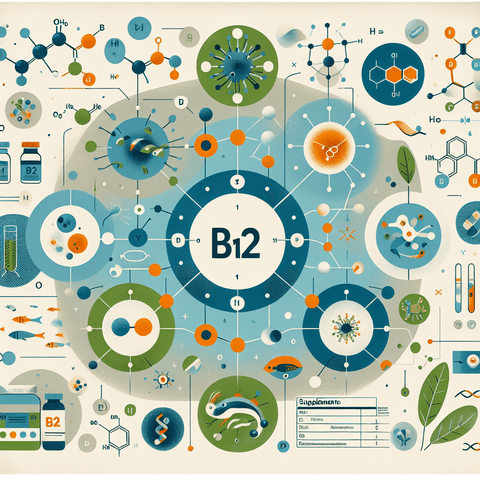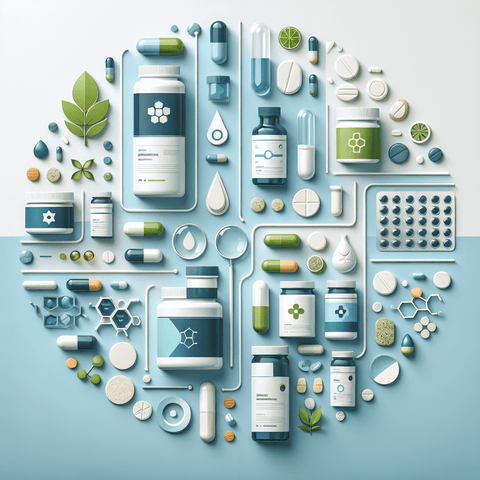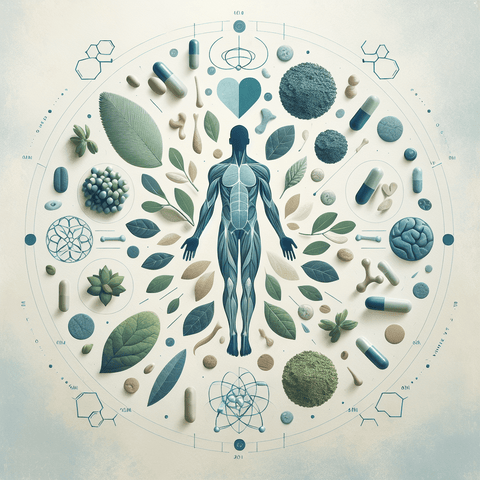Introduction
Vitamin B12, also known as cobalamin, is one of the essential B-complex vitamins vital for survival and well-being. It plays a critical role in numerous bodily functions including DNA synthesis, neurological function, and red blood cell formation. Because of its fundamental contribution to essential physiological operations, a lack of vitamin B12 can result in serious health complications such as anemia, fatigue, nerve damage, and cognitive disturbances. Unlike other vitamins, B12 is unique in that it's not produced by plants or animals but rather by certain types of bacteria. These bacteria either live in the gastrointestinal tracts of animals or in the soil and water. This makes sourcing vitamin B12 primarily dietary, especially related to animal-based foods or fortified alternatives. In today’s nutrition-conscious world, understanding where vitamin B12 is found is crucial—not only for achieving a balanced diet but also for those who follow specific dietary patterns such as vegetarianism or veganism, who may rely more on supplements to meet their B12 needs. This article explores the functional importance of vitamin B12, the best natural sources, how it’s supplemented, and how everyone—from meat-eaters to plant-based dieters—can ensure they are getting enough B12 to maintain optimal health.1. Vitamin B12 and Its Significance in Nutritional Supplements
Vitamin B12 is an essential water-soluble vitamin that the human body cannot produce on its own. This means it must be obtained from dietary sources or supplements. B12 is widely available in multiple supplement forms, each offering bioavailability and functional differences beneficial for various individuals. The most common forms of vitamin B12 in nutritional supplements include:- Cyanocobalamin: A synthetic form of B12 used frequently due to its stability and cost-effectiveness. It must be converted in the body into the active forms methylcobalamin and adenosylcobalamin.
- Methylcobalamin: A naturally occurring form of B12 that is bioactive and used directly in cellular metabolism, particularly within the nervous system.
- Adenosylcobalamin: Another bioactive form that primarily functions in the mitochondria for energy production.
2. Sources of Vitamin B12: Animal-Based Foods and Fortified Products
In natural form, vitamin B12 is found almost exclusively in animal-based foods. This is because animals either synthesize the vitamin through their gut bacteria or obtain it from the bacteria-rich foods they consume. Humans, on the other hand, rely entirely on external sources for their B12 requirements. Here’s a look at primary animal-based sources:- Beef liver and kidney: Among the most potent sources, with liver providing nearly 70-80 micrograms per 100 grams.
- Clams and oysters: Rich in both B12 and essential minerals like zinc and selenium.
- Fish varieties such as salmon, trout, and tuna offer high B12 content alongside omega-3 fatty acids and lean protein.
- Poultry and red meat: Chicken, turkey, lamb, and beef are all good sources, particularly in muscle and organ meats.
- Eggs and dairy: Moderate B12 contributors, widely accessible for those who follow ovo-lacto vegetarian diets.
3. B12 Rich Foods: Top Dietary Choices for Maintaining Adequate Levels
For those who consume a regular omnivorous or vegetarian diet, a variety of B12-rich foods can help maintain sufficient nutrient levels. Understanding these sources enables better planning of meals and ensures preventive nutrition against B12 deficiency-related complications.- Meat and Poultry: Beef and liver offer incredibly high concentrations of B12. For instance, a 100-gram serving of cooked beef liver can provide more than 1,000% of the daily value (DV) for B12. Chicken and turkey, though less potent, are still reliable sources when consumed regularly.
- Seafood: Clams offer approximately 98.9 µg of B12 per 100 grams, making them one of the richest natural sources. Other excellent choices include sardines, mackerel, trout, and tuna—all of which carry between 4–20 µg per serving. These also provide healthful omega-3 fatty acids, making them nutritionally dense options.
- Dairy: Full-fat and low-fat milk, cheese (especially Swiss and mozzarella), and yogurt contribute reliably to daily B12 intake. A cup of milk provides roughly 1.1 µg of B12, which constitutes nearly 50% of the adult daily requirement.
- Eggs: While not as densely packed with B12 as meat or fish, eggs—especially the yolks—still offer about 0.6 µg per egg, providing a helpful supplement in composite diets.
4. Natural B12 Sources: The Most Effective Geographical and Dietary Origins
While most people obtain their vitamin B12 through commonly available animal-based foods, there exists a rich biological context for the vitamin’s origin: bacterial synthesis. B12 is produced by microorganisms found in the soil or the guts of animals. Historically, humans might have acquired small B12 quantities through consumption of unwashed vegetables or untreated water, both once rich in environmental bacteria. However, increased sanitation and food handling measures have eliminated these pathways, making animal agriculture sources the primary natural suppliers of B12. Certain animal products are inherently enriched with B12 due to their physiological pathways. Ruminants like cows and sheep have a multi-chambered stomach full of bacteria that synthesize B12 as part of their digestion. These animals’ organs, particularly the liver and kidneys, are therefore abundant natural B12 reservoirs. Other wild or pasture-grazing animals may also serve as superior sources compared to grain-fed livestock, due to more diverse gut flora. This has implications depending on geographical and dietary practices. For example, in regions where fish consumption is higher (like Japan or Scandinavian countries), B12 deficiency is rarer than in Western populations adopting mostly refined or processed diets. Bioavailability is a critical consideration. Natural B12 from food sources like meats and dairy are known to have high absorption rates in healthy individuals. However, factors like age, medication (especially proton-pump inhibitors), and certain illnesses can impair absorption at the intrinsic factor level—a glycoprotein needed for B12 assimilation in the small intestine. In such circumstances, it may be necessary to provide easily digestible forms like sublingual methylcobalamin or injectables. Individuals with absorption barriers may also need longer-term supplementation, underscoring the necessity of regular blood tests to monitor B12 status.5. Vitamin B12 Dietary Sources: Incorporating B12 into Your Everyday Meals
Incorporating adequate vitamin B12 into everyday meals doesn’t require complex planning—just thoughtful food selection and some culinary creativity. By forming a diet around dependable B12 sources, individuals can enjoy flavorful and nutritious meals that support cognitive and physiological health. A few practical strategies include:- Start your day with B12-rich proteins. Consider scrambled eggs with cheese and a side of Greek yogurt for a breakfast high in B12 and protein.
- Include fish-based dishes in lunch or dinner. Salmon or tuna salad, grilled trout with vegetables, or a hearty seafood stew not only deliver excellent B12 levels but also essential omega-3s.
- Utilize organ meats creatively. Dishes like liver pâté, or adding minced liver to meatballs or sausages, increase nutrient density without overpowering flavor.
- Add dairy as a functional boost. Cheese as a topping or snack, and milk in smoothies or cereals, are easy ways to include dairy-derived B12.
6. B12 for Vegans: Navigating Plant-Based Diets for Adequate B12 Intake
Vegans face a unique challenge when it comes to vitamin B12 intake, as no plant naturally produces usable forms of the vitamin. Therefore, strategic supplementation and consumption of fortified foods are non-negotiable components of a well-planned vegan diet. Fortified options commonly include:- Fortified cereals
- Fortified plant-based milks, such as almond, soy, oat, and coconut
- Fortified nutritional yeast, popular among vegans for its cheesy flavor and ease of integration into meals
Conclusion
Vitamin B12 plays a vital role in maintaining energy, supporting neurological integrity, and developing red blood cells. Understanding where it comes from is key to ensuring an adequate intake through diet or supplementation. Natural sources of B12 come from animal-derived foods, while fortified foods and supplements help bridge the gap for those on plant-based or restricted diets. Proper awareness and strategic planning—especially among vegans, the elderly, and those with digestive disorders—can ensure optimal B12 levels and prevent deficiencies. Consulting with healthcare professionals for regular monitoring and personalized supplementation advice is always recommended. Combining high-quality food with trusted supplements is the most reliable route to achieving balanced B12 intake. Interested readers are encouraged to explore Topvitamine's curated B12-supporting supplement collection, including energy, immunity, and bone health boosters.Q&A Section
Q: Can I get enough B12 from a vegetarian diet?A: Yes, but you’ll need to rely heavily on dairy, eggs, and B12-fortified foods or supplements to meet daily requirements. Q: What are the symptoms of B12 deficiency?
A: Common symptoms include fatigue, weakness, memory issues, tingling in extremities, and pale skin. Severe cases can lead to neurological damage. Q: Are all B12 supplements the same?
A: No. Supplements vary by form—methylcobalamin, adenosylcobalamin, and cyanocobalamin—and absorption rate. Sublingual options offer faster blood-system absorption. Q: Why shouldn’t vegans rely on plant sources of B12?
A: No plant produces bioavailable forms of B12. Only fortified products or supplements provide adequate and safe vegan sources. Q: How often should I monitor my B12 levels?
A: Ideally once or twice a year, especially if you fall into higher-risk categories or notice symptoms of deficiency.



